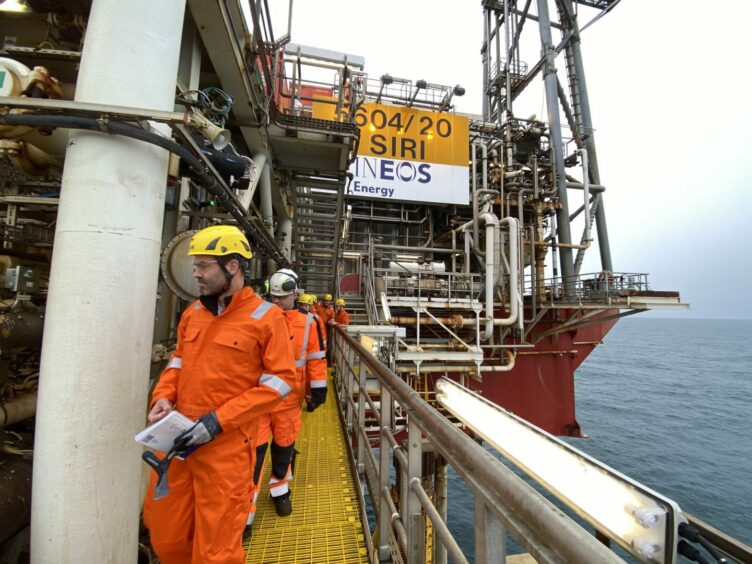
‘Big moment’ hailed as Danish CCS project injects CO2 from an Ineos chemicals site in Belgium – marking the first major cross-border transport and storage of emissions in Europe.
Crown Prince Frederik of Denmark officially initiated the “world first” event in Esbjerg, which saw captured CO2 emissions from Belgium injected at the Nini field off Denmark as part of the Project Greensand carbon capture and storage (CCS) scheme.
Developed by INEOS and Wintershall Dea, lead partners in the Project Greensand consortium, the project has the potential to lock away between 0.45 to 1.45 million tonnes per year by late 2025-26.
By the end of 2030, this could climb to up to 8 million tonnes of CO2 per year – more than 13% of Denmark’s total annual emissions.
As in this case, it also offers a route for other emitters across Europe to decarbonise. Wednesday’s demonstration shows for the first time the feasibility of CO2 storage, with emissions captured at an INEOS Oxide site in Antwerp, Belgium, transported by ship to Esbjerg, and finally stored at Nini West in the North Sea.
Permission for trial injection was first granted in December, and Energy Voice visited the facility last month for a closer look.
Commenting on the first CO2 shipment, European Commission president Ursula von der Leyen noted: “This is a big moment for Europe’s green transition, and for our clean tech industry. The first ever full value chain, for carbon capture and storage in Europe.
“You are showing that it can be done. That we can grow our industry through innovation and competition, and at the same time, remove carbon emissions from the atmosphere, through ingenuity and cooperation. This is what Europe’s competitive sustainability is all about.”
The Commission estimates that the EU will need to capture and store up to 300 million tonnes of CO2 per year by 2050 to meet its climate goals.
Ineos boss Jim Ratcliffe added: “This important milestone firmly demonstrates that CCS is a technology that can deliver on a global scale. The task at hand for the industry and policymakers is now to support the continued development and deployment of CCS as an essential tool to mitigate climate change.”
Recommended for you
